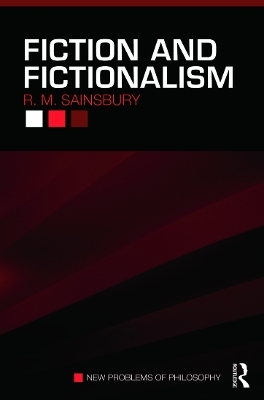
Fiction and Fictionalism
Seiten
2009
Routledge (Verlag)
978-0-415-77435-2 (ISBN)
Routledge (Verlag)
978-0-415-77435-2 (ISBN)
Are fictional characters such as Sherlock Holmes real? Fiction and Fictionalism is an excellent introduction to this central topic in philosophy and includes chapter summaries, annotated further reading and a glossary of technical terms.
Are fictional characters such as Sherlock Holmes real? What can fiction tell us about the nature of truth and reality? In this excellent introduction to the problem of fictionalism R. M. Sainsbury covers the following key topics:
what is fiction?
realism about fictional objects, including the arguments that fictional objects are real but non-existent; real but non-factual; real but non-concrete
the relationship between fictional characters and non-actual worlds
fictional entities as abstract artefacts
fiction and intentionality and the problem of irrealism
fictionalism about possible worlds
moral fictionalism.
R. M. Sainsbury makes extensive use of examples from fiction, such as Sherlock Holmes, Anna Karenina and Madame Bovary and examines the work of philosophers who have made significant contributions to the topic, including Meinong, David Lewis, and Bas Van Fraassen. Additional features include chapter summaries, annotated further reading and a glossary of technical terms, making Fiction and Fictionalism ideal for those coming to the issue for the first time.
Are fictional characters such as Sherlock Holmes real? What can fiction tell us about the nature of truth and reality? In this excellent introduction to the problem of fictionalism R. M. Sainsbury covers the following key topics:
what is fiction?
realism about fictional objects, including the arguments that fictional objects are real but non-existent; real but non-factual; real but non-concrete
the relationship between fictional characters and non-actual worlds
fictional entities as abstract artefacts
fiction and intentionality and the problem of irrealism
fictionalism about possible worlds
moral fictionalism.
R. M. Sainsbury makes extensive use of examples from fiction, such as Sherlock Holmes, Anna Karenina and Madame Bovary and examines the work of philosophers who have made significant contributions to the topic, including Meinong, David Lewis, and Bas Van Fraassen. Additional features include chapter summaries, annotated further reading and a glossary of technical terms, making Fiction and Fictionalism ideal for those coming to the issue for the first time.
Mark Sainsbury, University fo Texas, Austin, USA
Introduction 1. What is fiction? 2. Realism about fictional objects 3. Fictional objects are nonexistents 4. Worlds and truth: fictional worlds, possible worlds 5. Fictional entities are abstract artifacts 6. Irrealism: fiction and intentionality 7. Some fictionalists 8. Fictionalism about possible worlds 9. Moral fictionalism 10. Retrospect Glossary Notes Bibliography Index
| Erscheint lt. Verlag | 13.8.2009 |
|---|---|
| Reihe/Serie | New Problems of Philosophy |
| Verlagsort | London |
| Sprache | englisch |
| Maße | 156 x 234 mm |
| Gewicht | 430 g |
| Themenwelt | Geisteswissenschaften ► Philosophie ► Logik |
| Geisteswissenschaften ► Philosophie ► Metaphysik / Ontologie | |
| Geisteswissenschaften ► Philosophie ► Sprachphilosophie | |
| Mathematik / Informatik ► Mathematik | |
| ISBN-10 | 0-415-77435-7 / 0415774357 |
| ISBN-13 | 978-0-415-77435-2 / 9780415774352 |
| Zustand | Neuware |
| Informationen gemäß Produktsicherheitsverordnung (GPSR) | |
| Haben Sie eine Frage zum Produkt? |
Mehr entdecken
aus dem Bereich
aus dem Bereich
Schulbuch Klassen 7/8 (G9)
Buch | Hardcover (2015)
Klett (Verlag)
31,50 €
Buch | Softcover (2004)
Cornelsen Verlag
25,99 €



